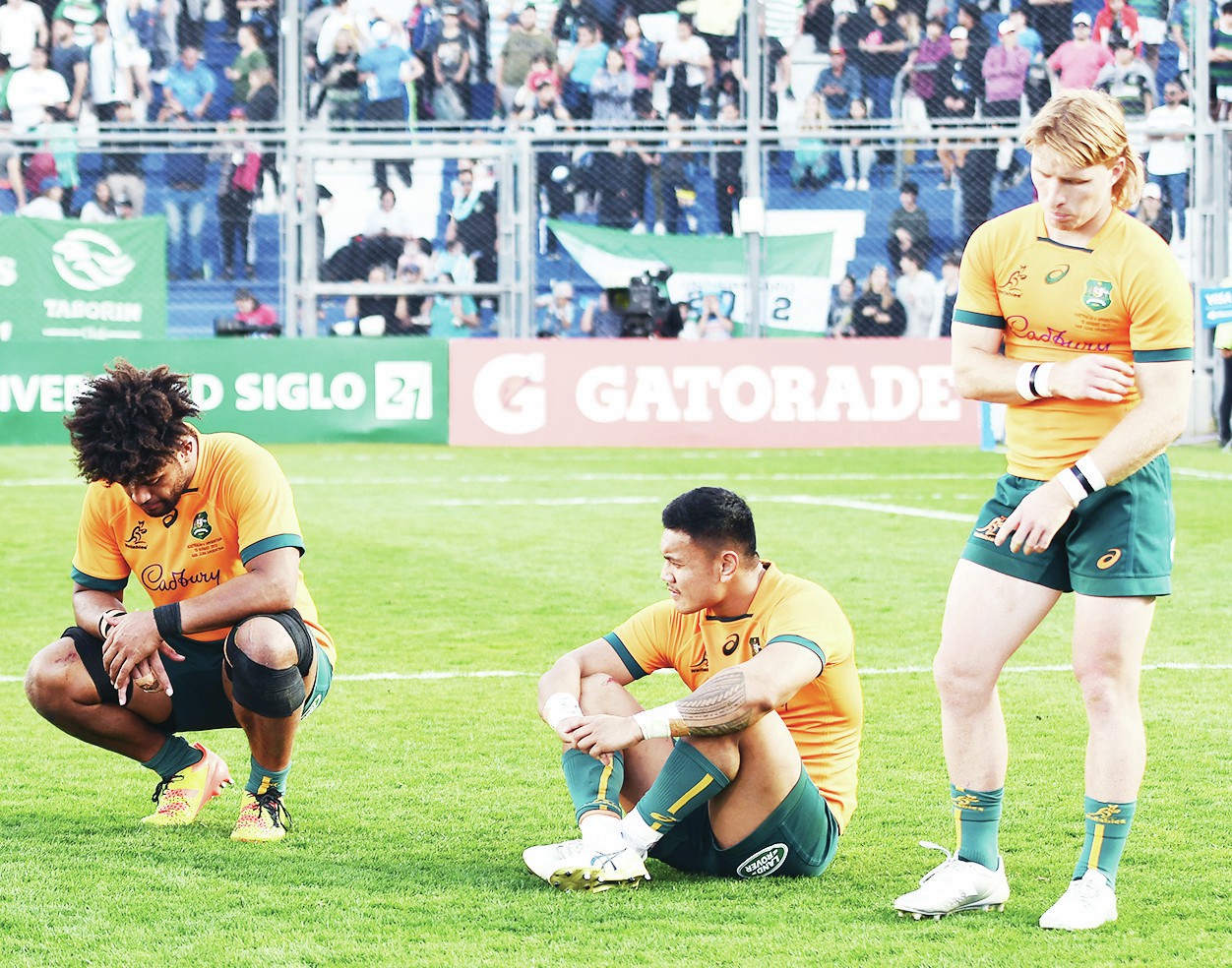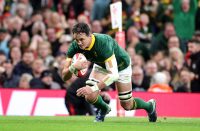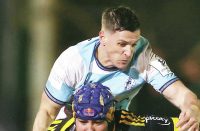
A bad moon had risen over Brisbane when England emerged from the Lang Park tunnel on an early June evening in 1998. Just how bad became clear when Tony Diprose, captain for one night only, took an ill-timed short cut through an avenue of fireworks and narrowly escaped first-degree burns to his nether regions.
Things went downhill from there, England conceding 76 unanswered points to the Wallabies – their worst international defeat by a distance best measured in light years. How the hosts laughed. Dick McGruther, one of the more brazen presidents of the Australian Rugby Union, described the tourists as “the most underequipped group of Englishmen sent here since the First Fleet”.
Poor old Diprose. On top of the pyrotechnic misadventure, not to mention the slaughter itself, he had to endure the smart-arsed attentions of a group of Hawaiian-shirted locals performing press-ups behind the sticks. Not any old press-ups, mind you: these were cumulative press-ups, started from scratch every time the Wallabies scored. Which was often.
“When they got to 70 points,” the scandalously underrated No.8 told your columnist, “one of them came up to me as we were waiting for the conversion. ‘Jeez,’ he said. ‘Why don’t you guys start tackling? You’re killing us.’ That was a bad moment, I have to admit.”
Every Test nation, with the possible exception of New Zealand, knows what it is to lose horribly enough for the Samaritans to consider cutting their own phone lines. Think of Wales, who lost 96-13 to the Springboks a fortnight after England’s defenestration on the Queensland coast.
Nick Mallett, who coached the South Africans in Pretoria that day, was not amused by what amounted to a waste of his time and described Wales as the worst international side he had seen. “Any Super Rugby team would have beaten them by 40 points,” he remarked, brutally.
More brutal still were the words of James Dalton, the Springbok hooker. As Wales sent on a late substitute – the question “why bother?” sprang to mind – he said to the poor soul concerned: “You must be a seriously sh*t player to be on the bench for this lot.” An “ouch” moment if ever there was one.
Spool forward four years and it was the turn of the South Africans themselves. Smithereened all over Twickenham to the tune of 50-plus points, their performance was almost as bankrupt as their attitude.
If the Springboks fired any shots at all, they were of the cheapest variety available. It would have been shocking had it not been so laughable: when they complained afterwards that England had been no angels themselves and brought as evidence the broken nose suffered by one of their number, it quickly turned out that the damage had been caused by a misdirected punch from one of the victim’s own countrymen.
Suddenly, it is the Wallabies who find themselves holding the smelly end of the stick. Their defeat at the hands of Argentina in San Juan eight days ago was not of the magnitude of 76-0 or 96-13, but 48-17 was on the grisly end of gruesome when seen in its proper context. Not to put too fine a point on it, the Australians were Godawful. Leaving aside the tireless, near-heroic No.8 Rob Valetini, who now shares at least something of Diprose’s pain all those years ago, their performance was as close to farcical as made no difference. What the hell were they doing out there?
James Slipper, the long-serving prop and emergency skipper, said his side “probably fell short of standards”. Which, if we’re being honest, probably fell short of the full truth. Meanwhile, the Aussies in the commentary box spent much of the match berating Karl Dickson, the referee. Talk about hitting the wrong target. Who did they think they were? Springboks?
It took a New Zealander – the one currently coaching the Wallabies – to come clean. “Massive disappointment,” said Dave Rennie, his teeth firmly gritted but his voice plenty loud enough for everyone to hear. “Not good enough. We want to earn the respect of the country and you don’t do it with performances like that.”

There is a thread connecting all of the teams on the wrong side of these pratfalls: selection. All were missing important personnel, some through injury and others for reasons of policy. If this tells us anything, it is that even those countries who routinely feature at the business end of World Cup tournaments are overly dependent on half a dozen elite players.
Back in ’98, the England starting line-up featured Spencer Brown, Steve Ravenscroft, Scott Benton, Ben Sturnham and Richard Pool-Jones. Between them, they won 10 caps – almost all of them on what became known, with good reason, as the “Tour of Hell”.
Which is not a particularly encouraging omen for Lalakai Foketi, Lachlan Lonergan, Jed Holloway, Fraser McReight and the five bench bunnies who are still in single figures, internationally speaking.
The sky above San Juan last weekend may turn out to have been every bit as threatening as those lunar conditions over Brisbane a quarter of a century ago.























